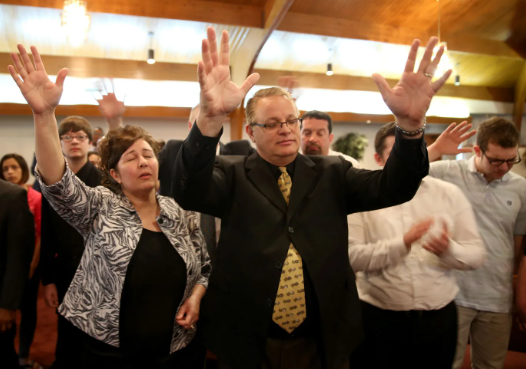Pentecostalism is a vibrant and rapidly growing branch of Christianity that emphasizes the experience of the Holy Spirit and spiritual gifts. But where did this movement come from? Let’s explore the roots of Pentecostalism through a historical overview.
Early Beginnings
The roots of Pentecostalism can be traced back to the late 19th and early 20th centuries, a time of great religious upheaval and revival in the United States. Many believe that the movement began in Topeka, Kansas, in 1901, at a Bible school led by Charles Parham. It was here that the students experienced what they believed to be a “baptism of the Holy Spirit” accompanied by speaking in tongues.
The Azusa Street Revival
The movement gained momentum in 1906 with the Azusa Street Revival in Los Angeles, California. Led by an African-American preacher named William J. Seymour, this revival is considered the birthplace of modern Pentecostalism. It attracted people from diverse racial and social backgrounds, and the services were characterized by lively worship, speaking in tongues, and the manifestation of spiritual gifts.
Key Beliefs and Practices
Pentecostalism is marked by several key beliefs and practices, including the belief in the baptism of the Holy Spirit as a separate experience from conversion, the importance of speaking in tongues as evidence of this baptism, and the expectation of divine healing and miracles. Pentecostals also emphasize the authority of Scripture, evangelism, and the imminent return of Jesus Christ.
Global Spread
From its humble beginnings in the United States, Pentecostalism has spread rapidly around the world. Today, it is estimated that there are over 600 million Pentecostal and charismatic Christians worldwide, making it one of the fastest-growing religious movements in history. Pentecostal churches can be found in nearly every country, with particularly large followings in Africa, Latin America, and Asia.
Conclusion
In conclusion, the roots of Pentecostalism can be traced back to the early 20th century, when a renewed emphasis on the Holy Spirit and spiritual gifts led to the birth of a vibrant and diverse movement within Christianity. Today, Pentecostalism continues to thrive and grow, attracting millions of followers around the world with its emphasis on personal experience, dynamic worship, and the power of the Holy Spirit.

